American West Quotes
Quotes tagged as "american-west"
Showing 1-21 of 21
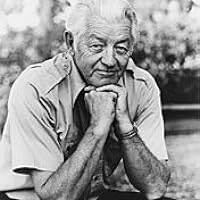
“One cannot be pessimistic about the West. This is the native home of hope. When it fully learns that cooperation, not rugged individualism, is the quality that most characterizes and preserves it, then it will have achieved itself and outlived its origins. Then it has a chance to create a society to match its scenery.”
― The Sound of Mountain Water
― The Sound of Mountain Water

“Those roads provided breath-taking views. There's something special about an empty road going on and on and on to the horizon where the sun burns the world away into a dancing, shmmering heat haze that reflects the crystal blue sky, literally blurring the line between heaven and earth.”
―
―
“When the culture of the East, its chief characteristic, is added to the strength of body and the strength of mind of the agricultural center, its special contribution, and these two great characteristics are constantly imbued with the spirit of independence and love of liberty which lives in the hearts of the dwellers of the mountains, their main quality added to the national character, there is every reason to believe that we shall have a people and institutions such as will be permanent; with such wealth of resources, of such high education and intelligence, and of such vitality, of such longevity, of such devotion to freedom and hostility to centralization and tyranny as shall enable this Nation of ours to stand indefinitely; and to maintain in the future years its manifest destiny of leading the peoples and nations of earth in the principles of free government, constitutional security and individual liberty. Under these and under these alone, the faculties, the aspirations and inspirations of mankind may be unfolded into their full flowering to the fruition of an ever greater and more humane civilization.”
― Four Hundred Million Acres: The Public Lands and Resources
― Four Hundred Million Acres: The Public Lands and Resources
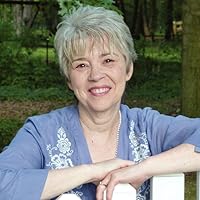
“he had offered some of his own background. A youth in the South. An education in the North. Bred for life in the East. Trying not to die in the West.”
― Doc
― Doc
“As to the reserved and withdrawn areas, excluding and excepting only the national parks, it is manifest that justice, equality, and dignity for these States require that ultimately all should be ceded to the States wherein they lie. The theory that the Western States can not intelligently and wisely administer these areas, for example, the forest reserves, is based on the delinquencies and wastefulness of the States to the eastward which had their resources and their opportunity, and in some cases, as States, misused and abused their rights. This constitutes no reason as to why the same right which they enjoyed should be denied to the Western states.”
― Four Hundred Million Acres: The Public Lands and Resources
― Four Hundred Million Acres: The Public Lands and Resources
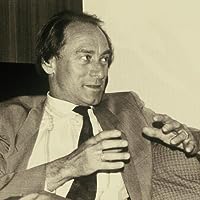
“In 1904, the newly created Los Angeles Department of Water and Power issued its first public report. 'The time has come,' it said, 'when we shall have to supplement the supply from another source.' With that simple statement, William Mulholland was about to become a modern Moses. But instead of leading his people to the promised land, he would cleave the desert and lead the promised waters to them.”
― Cadillac Desert: The American West and Its Disappearing Water
― Cadillac Desert: The American West and Its Disappearing Water
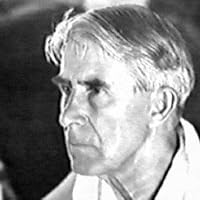
“The wind blew steadily in from the desert seeping the sand in low, thin sheets. Afternoon waned, the sun sank, twilight crept over the barren waste. There were no sounds but the seep of sand, the moan of wind, the mourn of wolf. Loneliness came with the night that mantled Beauty Stanton’s grave. Shadows trooped in from the desert and the darkness grew black. On that slope the wind always blew, and always the sand seeped, dusting over everything, imperceptibly changing the surface of the earth. The desert was still at work. Nature was no respecter of graves. Life was nothing. Radiant, cold stars blinked pitilessly out of the vast blue-black vault of heaven. But there hovered a spirit beside this woman’s last resting-place — a spirit like the night, sad, lonely, silent, mystical, immense.
And as it hovered over hers so it hovered over other nameless graves.
In the eternal workshop of nature, the tenants of these unnamed and forgotten graves would mingle dust of good with dust of evil, and by the divinity of death resolve equally into the elements again.”
― The U. P. Trail
And as it hovered over hers so it hovered over other nameless graves.
In the eternal workshop of nature, the tenants of these unnamed and forgotten graves would mingle dust of good with dust of evil, and by the divinity of death resolve equally into the elements again.”
― The U. P. Trail
“The American West is the playground for the country's obsession with exploitation and destruction, with most extractive economies near Native American reservations. There are increased rates of birth defects, higher rates of cancer. Violent people who mimc the violence done to the land.”
― Boys and Oil: Growing Up Gay in a Fractured Land
― Boys and Oil: Growing Up Gay in a Fractured Land
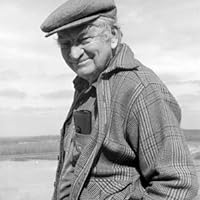
“It is too often the case,' Crook said, "that border news-papers disseminate all sorts of exaggerations and falsehoods about the Indians, which are copied in papers of high
character and wide circulation, in other parts of the country, while the Indians' side of the case is rarely ever heard. In this way the people at large get false ideas with reference to the matter. Then when the outbreak does come public attention is
turned to the Indians, their crimes and atrocities are alone condemned, while the persons whose injustice has driven them to this course escape scot-free and are the loudest in their denunciations. No one knows this fact better than the Indian, therefore
he is excusable in seeing no justice in a government which only punishes him, while it allows the white man to plunder him as he pleases.”
― Bury My Heart at Wounded Knee: An Indian
character and wide circulation, in other parts of the country, while the Indians' side of the case is rarely ever heard. In this way the people at large get false ideas with reference to the matter. Then when the outbreak does come public attention is
turned to the Indians, their crimes and atrocities are alone condemned, while the persons whose injustice has driven them to this course escape scot-free and are the loudest in their denunciations. No one knows this fact better than the Indian, therefore
he is excusable in seeing no justice in a government which only punishes him, while it allows the white man to plunder him as he pleases.”
― Bury My Heart at Wounded Knee: An Indian
“In the largest sense, the preservation/sagebrush processes outlined in this story are driven by three basic components of American culture: land ownership, independence, and individualism.”
― Wilderness Preservation and the Sagebrush Rebellions
― Wilderness Preservation and the Sagebrush Rebellions

“Joshua took a gulp of his own brew. “Need I have some other cause, when this plague could devastate so many of my patients and neighbors? When, if some of the reports prove true, we might see the town reduced painfully in size, as farmers abandon their holdings and flee to the East?”
If the thought of one particular family leaving town, of Clara Brook’s tall figure climbing aboard a wagon and vanishing beyond the horizon, gave him a peculiar twinge, he was hardly obliged to say so.”
― What Heals the Heart
If the thought of one particular family leaving town, of Clara Brook’s tall figure climbing aboard a wagon and vanishing beyond the horizon, gave him a peculiar twinge, he was hardly obliged to say so.”
― What Heals the Heart
“Along the way, decisions about interpretation and presentation were made. Very clearly, it was decided the Osage viewpoint would prevail - it would hold the center stage. If I have erred I have tried to err on behalf of the Osages. Some will accuse me of being biased in favor of the Osages. My answer is, “it is time for some bias in favor of the Osages - there has been so much bias against them.”
Another priority is to avoid the “Lo! The poor Indian,“ practice, which seeks to point to the great evils committed against Indians. If this were all it did, it would not be so repulsive, but it also points the accusing finger at all who have descended from those people who treated Indians so shabbily. It is an outright bid for sympathy and relieves one of the need to comprehend. The Osages do not need or want sympathy, but they desperately need understanding.”
― A History of the Osage People
Another priority is to avoid the “Lo! The poor Indian,“ practice, which seeks to point to the great evils committed against Indians. If this were all it did, it would not be so repulsive, but it also points the accusing finger at all who have descended from those people who treated Indians so shabbily. It is an outright bid for sympathy and relieves one of the need to comprehend. The Osages do not need or want sympathy, but they desperately need understanding.”
― A History of the Osage People
“To be attracted to another man in a violent place seems akin to a ticking bomb, logging, strip-mining, fracking. The American West is the playground for the country’s obsession with exploitation and destruction, with most extractive economies near Native American reservations. There are increased rates of birth defects. Higher rates of cancer. Violent people who mimic the violence done to the land. BOOM. And where there’s danger, there’s room for trespassing. And where there’s trespassing, there’s room for mischief.”
― Boys and Oil: Growing Up Gay in a Fractured Land
― Boys and Oil: Growing Up Gay in a Fractured Land
“I wanted to be that open with others. Be able to express myself without fear. Spare emotions fester in a landscape where the only way capitalism has made sense of the American West is to fence it in. Break it into 160-acre parcels. Frack, mine, dam, and cut it to a stubble.”
― Boys and Oil: Growing Up Gay in a Fractured Land
― Boys and Oil: Growing Up Gay in a Fractured Land

“While she waited there she forgot the prospect of untoward change. The bray of a lazy burro broke the afternoon quiet, and it was comfortingly suggestive of the drowsy farmyard, and the open corrals, and the green alfalfa fields. Her clear sight intensified the purple sage-slope as it rolled before her. Low swells of prairie-like ground sloped up to the west. Dark, lonely cedar trees, few and far between, stood out strikingly, and at long distances ruins of red rocks. Farther on, up the gradual slope, rose a broken wall, a huge monument, looming dark purple and stretching its solitary, mystic way, a wavering line that faded in the north. Here to the westward was the light and color and beauty. Northward the slope descended to a dim line of canyons from which rose an up-flinging of the earth, not mountainous, but a vast heave of purple uplands, with ribbed and fan-shaped walls, castle-crowned cliffs, and gray escarpments. Over it all crept the lengthening, waning afternoon shadows.”
― Riders of the Purple Sage
― Riders of the Purple Sage

“Sitting Bull gave most of the money away to the band of ragged, hungry boys who seemed to surround him wherever he went. He once told Annie Oakley, another one of the Wild West Show's stars, that he could not understand how white men could be so unmindful of their own poor. "The white man knows how to make everything," he said, "but he does not know how to distribute it.”
― Bury My Heart at Wounded Knee: An Indian History of the American West
― Bury My Heart at Wounded Knee: An Indian History of the American West

“We tried to run," Louise Weasel Bear said, "but they shot us like we were a buffalo. I know there are some good white people, but the soldiers must be mean to shoot children and women. Indian soldiers would not do that to white children.”
― Bury My Heart at Wounded Knee: An Indian History of the American West
― Bury My Heart at Wounded Knee: An Indian History of the American West

“Colorado was swept clean of Indians. Cheyenne and Arapaho, Kiowa and Comanche, Jicarilla and Ute - they had all known its mountains and plains, but now no trace of them remained but their names on the white man's land.”
― Bury My Heart at Wounded Knee: An Indian History of the American West
― Bury My Heart at Wounded Knee: An Indian History of the American West

“With each surge of westward movement a new community came into being. These communities devoted themselves not to marching onward but to cultivating the earth. They plowed the virgin land and put in crops, and the great Interior Valley was transformed into a garden for the imagination, the Garden of the World. The vision of this vast and constantly growing agricultural society in the interior of the continent became one of the dominant symbols of nineteenth-century American society - a collective representation, a poetic idea (as [Alexis de] Tocqueville [1805-59] noted in the early 1830s) that defined the promise of American life. The master symbol of the garden embraced a cluster of metaphors expressing fecundity, growth, increase and blissful labor in the earth, all centring about the heroic figure of the idealized frontier farmer armed with that supreme agrarian weapon, the sacred plow.”
― Virgin Land: The American West as Symbol and Myth
― Virgin Land: The American West as Symbol and Myth
“...perhaps the Great American Desert's importance to the Western genre derives from the nineteenth-century view of the arid West as the natural refuge of Indians and, by extension, of all outlaws. The agrarian ideal, with its roots in Rousseau's thought, defined civilisation as arising from the agricultural life, so the migratory Indians - often compared in nineteent-century writings to Tartars and Bedouin - were, by reason of their socioeconomic organisation, outside the pale of civilised society and the area in which they moved was regarded as fit only for outlaws. It is as a milieu within which men outside civilised, agrarian society resolve their tensions, both personal and social, that the Western has used the myth of the Great American Desert, as in Riders of Death Valley (Forde Beebe and Ray Taylor, 1941), The Last Wagon (Delmer Daves, 1956), The Law and Jake Wade (John Sturges, 1958) and the Boetticher cycle.”
― Cinema, A Quarterly Magazine, No. 4, October 1969
― Cinema, A Quarterly Magazine, No. 4, October 1969

“In the decade following the Civil War the impetus of the westward movement and the implied pledge of the victorious Republican Party to develop the West were uncontrollable forces urging the agricultural frontier forward. On the level of the imagination it was therefore necessary that the settlers' battle with drought and dust and wind and grasshoppers should be supported by the westward expansion of the myth of the garden. In order to establish itself in the vast new area of the plains, however, the myth of the garden had to confront and overcome another myth of exactly opposed meaning, although of inferior strength - the myth of the Great American Desert.”
― Virgin Land: The American West as Symbol and Myth
― Virgin Land: The American West as Symbol and Myth
All Quotes
|
My Quotes
|
Add A Quote
Browse By Tag
- Love Quotes 98k
- Life Quotes 76.5k
- Inspirational Quotes 73.5k
- Humor Quotes 44k
- Philosophy Quotes 30k
- Inspirational Quotes Quotes 27k
- God Quotes 26.5k
- Truth Quotes 24k
- Wisdom Quotes 23.5k
- Romance Quotes 23.5k
- Poetry Quotes 22.5k
- Death Quotes 20k
- Life Lessons Quotes 20k
- Happiness Quotes 19k
- Quotes Quotes 18k
- Hope Quotes 18k
- Faith Quotes 18k
- Inspiration Quotes 17k
- Spirituality Quotes 15k
- Religion Quotes 15k
- Motivational Quotes 15k
- Writing Quotes 15k
- Relationships Quotes 14.5k
- Life Quotes Quotes 14.5k
- Love Quotes Quotes 14k
- Success Quotes 13.5k
- Time Quotes 12.5k
- Motivation Quotes 12.5k
- Science Quotes 11.5k
- Motivational Quotes Quotes 11.5k

